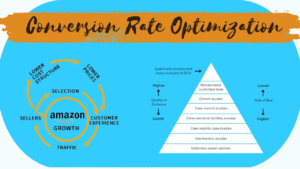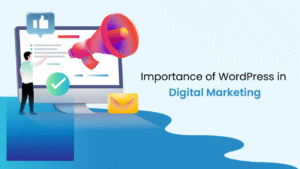Digital promoting has come a long way. It’s quicker, more astute, and more focused on than ever some time recently. But with so numerous stages battling for your dollars, one address keeps popping up: Ought to you spend your budget on Google Ads vs. Meta Ads in 2025?
If you’re befuddled, you’re not alone. Google Ads vs. Meta Ads Both stages guarantee enormous returns, but they work in exceptionally diverse ways. So let’s break it all down side by side and figure out where your advertisement dollars will work the hardest this year.
What Are Google Ads vs. Meta Ads? A Speedy Refresher
Before we plunge into comparisons, let’s get on the same page.
Google Ads vs. Meta Ads lets you put advertisements over Google’s endless biological system Look, YouTube, Gmail, and millions of accomplice websites.
Meta Advertisements incorporate publicizing on Facebook, Instagram, Flag-bearer, and the Group of onlookers Network.
In brief: Google is where individuals look. Meta is where individuals scroll.
Your Audience’s Expectation: Look vs. Social
Here’s where it gets interesting.
On Google, individuals are effectively looking for something. “Best coffee shop close me” or “affordable running shoes” implies they’re as of now midway through the buying journey.
On Meta, you’re focusing on clients whereas they’re browsing memes, catching up with companions, or observing cat recordings. They didn’t come to shop but with the right advertisement, you can start interest.
So, if your objective is to capture request, Google Ads vs. Meta Ads is your best companion. If you need to make request, Meta Advertisements shine.
Cost Per Tap (CPC): Who’s More Budget-Friendly in 2025?
Let’s conversation numbers.
In 2025, Google Ads’ CPC still tends to be higher, particularly in competitive businesses like back, law, and e-commerce. But it regularly conveys more sultry leads those prepared to buy.
Meta Advertisements, on the other hand, ordinarily have lower CPCs, particularly if you’re focusing on the right socioeconomics with locks in creative.
So inquire yourself: Do you need cheaper clicks, or more purchase-ready clicks?

Ad Sorts and Designs: Assortment Is the Zest of ROI
If you cherish testing with visuals, Meta Advertisements allow you the inventive play area of your dreams: Reels, Stories, Carousels, and Intelligently Polls.
Google offers text-based Look Advertisements, Show Pennants, YouTube video advertisements, and Shopping Advertisements. These work awesome when you need to hit clients when they’re looking or observing content.
In 2025, video advertisements are lord on both stages. But Meta Reels and YouTube Shorts are driving the way in short-form video ROI.
Targeting Capabilities: Who Knows Your Gathering of people Better?
Meta has continuously been the lord of micro-targeting. Interface, behaviors, life occasions you title it. With AI updates in 2025, Meta presently predicts client activities with startling precision (in a great way, mostly).
Google, in the interim, leverages its look history, site behavior, and buy aim to discover red-hot leads.
If you’re offering a specialty item or need brand revelation, go with Meta. If you’re chasing in-market buyers, Google’s got the edge.
Conversion Following and Analytics: Who Gives Superior Insights?
Both stages are stacked with apparatuses to track execution, but Google Ads vs. Meta Ads’ integration with Google Analytics 4 is difficult to beat. You can plunge profound into client ways, behaviors, and change rates.
Meta’s Advertisements Director is effective as well, particularly with progressed AI-driven bits of knowledge in 2025, but a few clients discover the interface a bit cluttered and detailing less natural than Google’s.
Scaling Your Campaigns: Which Stage Develops with You?
If your trade is scaling rapidly, both stages offer strong instruments. But Google Advertisements offers Execution Max campaigns a one-stop advertisement arrange that naturally runs over all Google channels, fueled by machine learning.
Meta, in the mean time, proceeds to refine Advantage+ Shopping Campaigns, which utilize AI to discover top-converting audiences.
Bottom line? Both scale well, but if you’re an e-commerce brand, Meta might deliver you a slight edge. For benefit businesses or high-intent B2B? Google rules.
Retargeting: Who Brings Clients Back Better?
Meta’s retargeting is still top-tier. Ever browsed a item on a site and seen it on Instagram 10 minutes afterward? That’s Meta enchantment at work.
Google’s Show Organize and YouTube advertisements are moreover awesome for retargeting, particularly if clients are inquiring about your competitors.
In 2025, retargeting works way better when you combine both stages Google to re-engage searchers, Meta to sustain intrigued visually.
AI and Robotization: More brilliant Campaigns in 2025
This year, AI does more overwhelming lifting than ever some time recently. Both Meta and Google utilize machine learning to optimize campaigns consequently, from offering techniques to gathering of people targeting.
But Google’s Savvy Offering and Execution Max feel somewhat more refined, particularly for conversion-driven campaigns.
Meta’s AI picture era and mechanized creatives are a creative’s dream, in spite of the fact that, letting you test varieties without lifting a finger.
Which One Ought to You Select? Or Do You Truly Have To?
Here’s the legitimate truth: it’s not either/or. In 2025, the most fruitful marketers combine both Google Ads vs. Meta Ads to cover each portion of the funnel.
Use Google Advertisements to capture high-intent clients who are searching.
Use Meta Advertisements to make mindfulness, construct a brand, and support your gathering of people visually.
Think of it like a tag group. Google gets their consideration when they require something. Meta keeps your brand best of intellect when they don’t.
Read More: Influencer Marketing 2.0: Building Authentic Connections That Last
Conclusion
Want leads quick and prepared to change over? Incline into Google Ads vs. Meta Ads. Need to construct a community, go viral, or present a unused item? Meta Advertisements are your stage.
But if you’re shrewd (and I know you are), you’ll construct a cross breed methodology that leverages both platforms’ qualities. That’s how you win in this unused age of computerized promoting.





